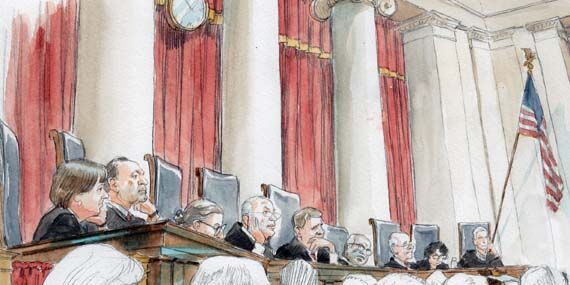Petitions of the week

on Aug 23, 2018 at 12:10 pm

This week we highlight petitions pending before the Supreme Court that address the standard for determining the adequacy of the “written description of the invention” in a patent, the effect of the Hobbs Act on whether courts may engage in a traditional Chevron analysis, and the interplay between Federal Power Act and the powers of the Federal Energy Regulatory Commission.
The petitions of the week are:
Issues: (1) Whether the Hobbs Act strips courts of jurisdiction to engage in a traditional Chevron analysis and requires automatic deference to an agency’s order even if there has been no challenge to the “validity” of such order; and (2) whether faxes that “promote goods and services even at no cost” must have a commercial nexus to a firm’s business to qualify as an “advertisement” under the Telephone Consumer Protection Act of 1991, which permitted civil liability for sending “unsolicited advertisements” by fax; or whether a plain reading of the rules set forth by the Federal Communications Commission creates a per se rule that such faxes are automatically “advertisements.”
Issue: Whether the standard for determining the adequacy of the “written description of the invention” in a patent must be “in such full, clear, concise, and exact terms as to enable any person skilled in the art to which it pertains . . . to make and use the same,” as stated within the Patent Act, 35 U.S.C. § 112(a), or whether court-created standards should control instead.
Issues: (1) Whether, given the Supreme Court’s holdings that the Federal Power Act pre-empts inconsistent state ratemaking and requires state agencies to treat cost allocations made by the Federal Energy Regulatory Commission as reasonable, FERC may deny a refund authorized by FPA Section 206(b) based on the threat of a state regulatory commission to violate the supremacy clause by denying recovery of the surcharge needed to make the refund; and (2) whether – when FERC grants a refund for an unjust and unreasonable holding-company cost allocation, pursuant to its policy to grant refunds for unjust and unreasonable rates, and numerous holding-company refund decisions support the policy – a U.S. court of appeals may, without scrutiny, accept FERC’s subsequent reversal of its refund decision based on its assertion that its previously cited policy never existed, and its reversal of key prior findings without explanation.


